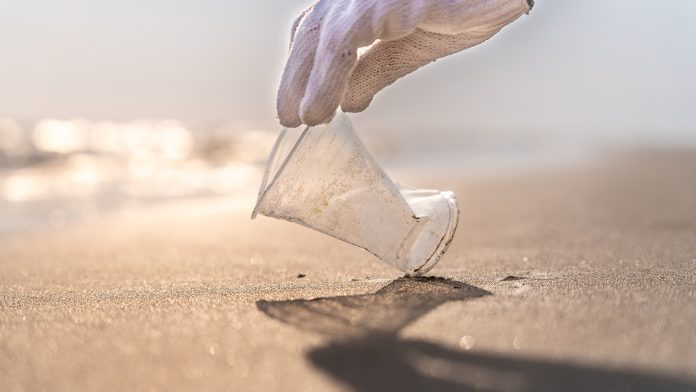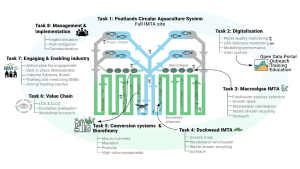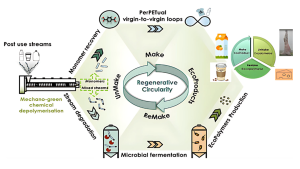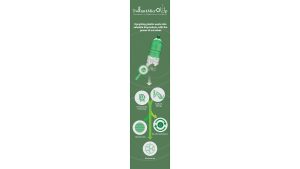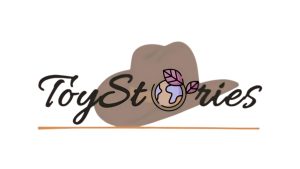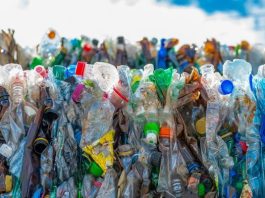Established in 2023, the LIFE Research Institute at the Technological University of the Shannon (TUS) is forging a series of bioscience research and technological innovations for the health and wellbeing of people and the planet.
Biological sciences lie at the heart of many essential aspects of society, from health, sport, agriculture, food, sanitation, and ecosystem preservation to the latest medical advances and being prepared for future pandemics.
For the first time in history, humanity has been able to control and implement science and technological developments with the power to meet global challenges. Bioscience innovations can supersede many conventional resources depleting polluting materials and processes. This progress coincides with increasing business and consumer demand and adoption of green technologies, which is driving an unprecedented need for advanced, high-performance biotechnologies and biomaterials.
At LIFE RI, we work in tandem with nature, with expert understanding and talent in harnessing relationships between the microstructure of biomaterials and their macroscopic functions to deliver key solutions that enable performance enhancement and meet health and environmental challenges.
Healthy sustainable society
The sustainable health and wellbeing of our global community and our environment are essential for the prosperity of our populations. Achieving healthy ecosystems means embracing new biotechnologies and bio-regenerative resources that benefit both the planet and humanity.
LIFE RI’s expertise in human nutrition, microbial science, food product innovation, and medicinal biologics drives groundbreaking solutions within bio-inspired circular economic models. By merging scientific advancements, industry collaboration, and public engagement, we promote adopting new bioprocessing methods that support sustainable, circular industrial practices and equip citizens for a healthy, sustainable future.
Sport and exercise promotion for optimal health and wellbeing
The SHE Research Centre is at the forefront of addressing the gender data gap in sport, health, and exercise science. Focusing on society’s least active members, particularly girls and women, the Centre develops evidence-based strategies to enhance physical activity, improve health outcomes, and optimise athletic performance. This work is essential for improving population health and wellness while promoting equity in sports experiences.
Current projects include analysing the sex-specific experiences of female athletes to improve health and performance, creating an innovative hydrogel for bioactive nutrient delivery with a focus on polyphenols, and assessing the impact of lifestyle interventions on childhood cancer survivors.
By tackling these critical challenges, the SHE Research Centre is paving the way for a healthier and more inclusive future.
National Bioeconomy Campus to bolster circularity for meat, agri-food and biomass sectors
This campus provides a means to bridge the gap between fundamental and early-stage applied biotransformation research, demonstration, and market implementation, leading to full industrial adoption.
Upscaling bioprocessing of complete bioresources, such as all left-over meat parts, to pilot level is being developed using best-practice methodologies to achieve processing circularity. Barriers, including the competitiveness of bio-based products and weak primary producer value chains, are being addressed to enable the transition to circular and sustainable models.
These demonstration projects will showcase Ireland’s response to the need for biobased process scaling and inspire others to undertake similar work. Bioprocessing.
BioWetlands in-action and visual archetype of the ‘bioeconomy’
Aquatic plants have higher photosynthetic efficiencies than land-based biomass production. Performing as a circular peatland with integrated feeding and nutrition aquaculture, the Mount Lucas site showcases how environmentally friendly practices can operate, producing new feeds and food ingredients from cultivated duckweed and macroalgae, using agri-food waste streams.
This integrated-multitrophic aquaculture/aquatech (IMTA) site also facilitates renewable living organisms, such as perch and rainbow trout, which can be used to produce food and energy.
Plans are in place to establish a biorefinery and bioresource conversion systems for manufactured products spanning cosmetics, textiles, bio fertilisers/biostimulants, packaging, bio-oils, pharmaceuticals, biologics for high-value compounds and biofuels. Carbon sequestration using algae farming for carbon absorption from the atmosphere. Onsite wind turbines provide energy generation to power the onsite facilities, promoting a zero waste/energy approach.
New plastics circularity frontiers revealing routes to the circular plastics economy
Prototype Low-carbon, industrial-grade plastic packaging with circular lifecycles is being developed as a direct alternative to current polluting petroleum-based plastics.
Akin to nature’s cycles, the new packaging operates within regenerative loops. Continuous Make-Unmake–Remake circularity enables fully circular life cycles where post-use ‘unmake’ is performed using in-house advanced fermentation, followed by ‘remaking’ within continuous loops. Advanced property features span processability, durability, mechanical performance, aesthetics, moisture and gas barrier properties, adhesivity and biodegradability).
For example, barrier properties include high gas barrier packaging equivalent to petrol-based Ethylene vinyl alcohol (EVOH) prototypes that can be used for pre-cooked foods, dairy, and meat products. Adhesive properties can be used for paper cups and plastic packaging sealant applications with equivalent performance to conventional synthetic adhesives.
Conventional petrochemical-based plastics can be replaced with lower production and disposal carbon footprint packaging, which prevents waste plastics pollution.
Transforming plastic waste: The Twinn4MicroUp project
The Twinn4MicroUp project is an ambitious initiative dedicated to tackling one of the world’s most pressing environmental challenges—plastic waste. With the active involvement of TUS, this project focuses on pioneering microbe-based solutions to upcycling plastic waste into valuable, sustainable bioproducts.
By leveraging advanced biotechnology, Twinn4MicroUp aims to reduce environmental pollution while creating economic opportunities through innovative reuse of plastic materials. The project is funded through the European Union’s Horizon Europe call, HORIZON-WIDERA-2023, which focuses on enhancing research and innovation capabilities across Europe.
TUS plays a pivotal role in driving research and fostering collaboration among international partners, ensuring cutting-edge advancements and real-world applicability. At its core, this project reimagines plastic waste as a resource, aligning science and sustainability to protect the planet for future generations.
Tackling plastic pollution through education: The ToyStories project
The ToyStories project, funded by the Irish Research Council, is an innovative initiative designed to raise awareness about plastic pollution and its impact on the environment by engaging over 400 children across Ireland in 2023.
The project targets young people aged 12-16 and uses interactive workshops and creative activities to educate participants about the dangers of plastic waste and the importance of sustainability. Students learn about the life cycle of plastics, the environmental consequences of mismanagement, and actionable solutions, fostering a deeper understanding of circularity and eco-friendly practices.
By working with schools in multiple Irish counties, ToyStories seeks to empower children to become environmental advocates and embrace sustainable behaviours. The project’s hands-on approach not only informs but inspires, encouraging young participants to think critically about their role in addressing global challenges like plastic pollution and climate change.
At LIFE RI, we collaborate with nature, leveraging expertise in bioscience technologies and integrating across a broad range of priority disciplines to deliver high-performance solutions that address pressing health and environmental challenges. The adoption and incorporation of new bioscience and technology innovations into everyday life pave the way to achieving better health and wellness for society while fostering a world that thrives in balance with nature.

